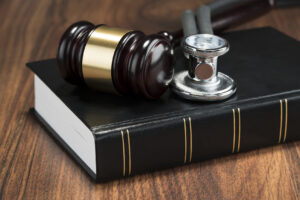
When you file a lawsuit or an insurance claim after a car accident, motorcycle accident, or other incident, you will be required to show evidence to support your damage claim. The two categories of damages under Georgia law are economic and non-economic damages.
Economic damages compensate you for financial losses resulting from the accident. You must have evidence to prove these damages.
Non-economic damages are generally presumed to arise from an accident. A jury or insurance adjuster will infer the value of these damages based on how an accident impacts your life.
Types of Damages in an Injury Claim

The legal system is divided into two primary areas: the criminal system and the civil system. The criminal system is concerned with criminal laws and involves prosecuting individuals for crimes. Convictions may result in incarceration, fines, or probation. The civil system resolves disputes between parties. If a jury finds one party liable, it will award damages based on the evidence presented.
Personal injury lawsuits are handled within the civil system. In a personal injury case, you must prove liability to receive damages. Proving liability is the first step in a civil action. The next step is to prove your damages. The jury will consider evidence of your losses and determine the appropriate compensation.
The two main types of damages you can seek are:
- Punitive Damages: These are awarded to punish a defendant for particularly egregious behavior. Punitive damages are not common and may be subject to legal caps under Georgia law.
- Compensatory Damages: These damages compensate you for your actual losses. Compensatory damage awards are divided into economic and non-economic damages.
Medical bills, property damage repair costs, and lost wages are examples of economic damages. You can quantify these expenses with receipts, bills, or other documentation. Economic damages must be substantiated with evidence.
Non-economic damages are more difficult to quantify. You can receive compensation for your physical pain, mental suffering, inconvenience, loss of companionship, or inability to perform tasks. Non-economic damages do not require evidentiary corroboration.
Medical Expenses
You can be compensated for your medical costs stemming from an accident. This includes treatment, surgery, physical or mental therapy, and medication. Accident related expenses will be covered.
If you have a pre-existing condition, you may claim expenses when an accident aggravates your condition. For example, imagine you have a bad back and are involved in a car wreck that damages your spine. Your damages will include expenses from the worsening of your bad back. However, if an accident does not make your pre-existing symptoms worse, you will not be compensated.
Medical Expenses Covered by Health Insurance
Your out-of-pocket expenses are included in your claim. Your health insurer may sometimes seek reimbursement from your damage award. Individual plans will determine whether the insurer is permitted to seek reimbursement under Georgia law.
Future Medical Expenses
Economic damages also include anticipated future medical costs. To determine these costs, you may need an expert to testify. Expert analysis can assist an insurance adjuster or jury to understand your future medical needs and associated costs.
Lost Income
This category of economic damages covers wages or salary lost due to your injury or recovery. This can include income that you directly lost because of your inability to work. It can also include any reduction in pay if you were forced to switch to less demanding duties.
Future Lost Income
This type of damage can be called diminished earning capacity. This refers to a reduction in your potential future income because of an injury. For example, if you are forced to retire from your job early, you may claim future lost income. You may need an expert to testify to prove this loss.
Supporting your Claim for Economic Damages
Bring copies of all available medical bills, wage statements, and other receipts when you meet with an injury lawyer. These documents will help your lawyer determine the economic damages you can claim. Your financial records are essential to prove your economic losses. Keeping good records is important when you file an insurance claim or lawsuit.
For more information on recovering compensation for economic losses, contact an experienced law firm to speak with an experienced injury lawyer.
